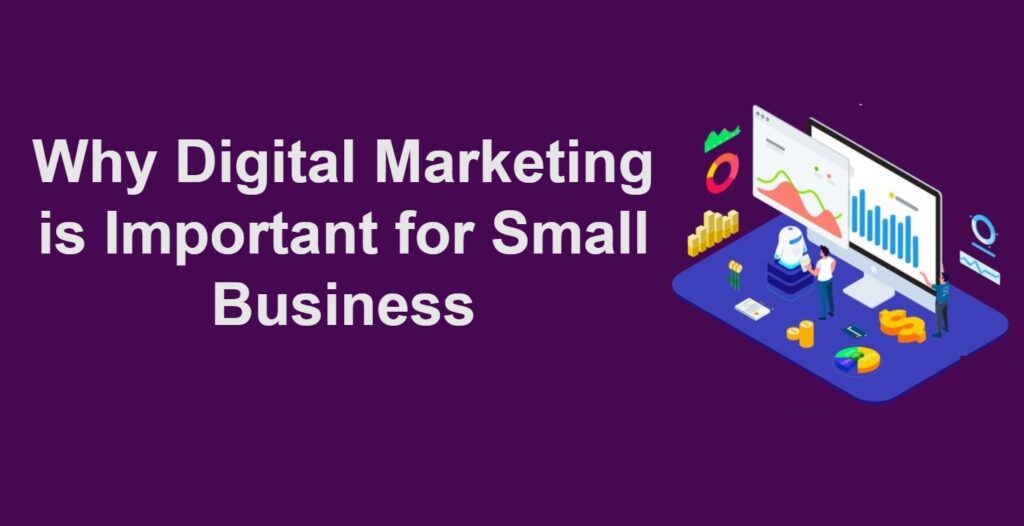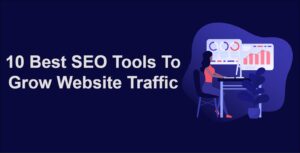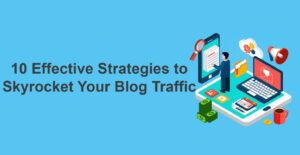In today’s fast-paced digital landscape, the importance of digital marketing for small businesses cannot be overstated. As the world becomes increasingly interconnected through the internet and technology, small businesses must adapt and embrace digital marketing strategies to remain competitive and thrive in the market.
This article delves into why digital marketing is crucial for small businesses, exploring various aspects and highlighting its significance.
Small businesses that embrace digital marketing strategies position themselves for growth, success, and longevity. As technology continues to advance, the role of digital marketing will only become more integral to small business success.
Digital marketing has revolutionized how small businesses approach their marketing efforts. The benefits range from leveling the playing field and cost-effectiveness to enhanced targeting and increased brand visibility.
So, if you’re a small business owner looking to thrive in the digital age, investing in digital marketing is not just an option—it’s a necessity.
Why Digital Marketing is Essential for Small Businesses
In the digital age, traditional methods of marketing and advertising are no longer sufficient to reach a wider audience. The advent of the internet and the rise of social media platforms have dramatically changed the way businesses connect with consumers.
Digital marketing encompasses a range of online tactics such as social media marketing, search engine optimization (SEO), content marketing, email marketing, and pay-per-click (PPC) advertising. Small businesses that incorporate these strategies into their marketing efforts gain a competitive edge by expanding their reach and visibility.
Having a strong online presence is no longer optional; it’s a necessity. Consumers turn to the internet to find products, services, and information. Without an online presence, small businesses risk missing out on a vast pool of potential customers.
1. Leveling the Playing Field
One of the most notable advantages of digital marketing for small businesses is the ability to level the playing field. Unlike traditional marketing, where large corporations with substantial budgets held a significant advantage, digital marketing allows small businesses to compete on a more equal footing. Through effective use of social media and content marketing, a small business can create a strong online presence and engage with a vast audience without the need for exorbitant budgets.
2. Cost-Effectiveness
Small businesses often operate with limited resources, making cost-effective marketing strategies essential. Digital marketing offers a cost-effective solution by allowing businesses to target specific demographics with precision. For instance, pay-per-click advertising enables businesses to display ads only to users who are likely to be interested in their products or services, reducing wasted ad spend.
Additionally, social media platforms provide affordable avenues for promoting products, running contests, and engaging with customers directly.
3. Enhanced Audience Targeting
Understanding and reaching your target audience is paramount in marketing success. Digital marketing provides tools that allow small businesses to analyze consumer behavior and preferences. With the help of data analytics, businesses can gather insights into what their audience is looking for, enabling them to tailor their marketing strategies accordingly. This personalized approach enhances customer satisfaction and builds brand loyalty.
4. Increased Brand Visibility
In the vast online landscape, having a strong brand presence is essential for attracting potential customers. Digital marketing techniques such as SEO ensure that your business appears in relevant search results when users look for products or services you offer. This increased visibility not only drives organic traffic to your website but also establishes your brand as a trustworthy authority in your industry.
5. Engagement and Interactivity
Engagement is a key factor in building customer relationships. Digital marketing platforms provide avenues for direct interaction with customers through comments, likes, shares, and direct messaging. Social media platforms, in particular, foster real-time engagement, allowing businesses to address customer inquiries, resolve issues, and showcase their human side. This level of interactivity enhances customer trust and fosters a positive brand image.
6. Measurable Results and Analytics
Unlike traditional marketing methods, where it’s often challenging to measure the impact of campaigns accurately, digital marketing offers comprehensive analytics. Businesses can track metrics such as website traffic, conversion rates, click-through rates, and engagement levels. This data provides valuable insights into the effectiveness of various strategies, enabling businesses to refine their approach for better results.
7. Adaptability and Flexibility
In the fast-evolving digital landscape, staying adaptable is crucial. Digital marketing allows small businesses to pivot their strategies quickly in response to market trends and consumer behavior. Whether it’s modifying ad campaigns, optimizing website content, or adjusting social media messaging, digital marketing offers the flexibility needed to stay ahead in a dynamic market.
Strategies for Effective Digital Marketing
Social Media Marketing
Social media platforms provide a direct line of communication between businesses and their target audience. By creating engaging content and interacting with followers, small businesses can increase brand awareness and customer loyalty.
Content Marketing
Creating valuable and relevant content establishes a business as an industry authority and builds trust with customers. Blogs, videos, infographics, and eBooks can all contribute to a solid content marketing strategy.
Search Engine Optimization (SEO)
SEO involves optimizing a website’s content and structure to rank higher in search engine results. Appearing on the first page of search results increases visibility and drives organic traffic.
Email Marketing
Email marketing is a powerful tool for nurturing leads and maintaining customer relationships. Businesses can send personalized offers, updates, and relevant content directly to their subscribers’ inboxes.
The Digital Marketing Landscape for Small Businesses
Challenges and Solutions
While the benefits of digital marketing are substantial, small businesses may face challenges in terms of resources, expertise, and competition. Outsourcing digital marketing tasks or investing in training can help overcome these challenges.
Staying Current
Digital marketing is constantly evolving, with new trends, platforms, and technologies emerging regularly. Small businesses need to stay informed and adapt to these changes to remain competitive and relevant.





